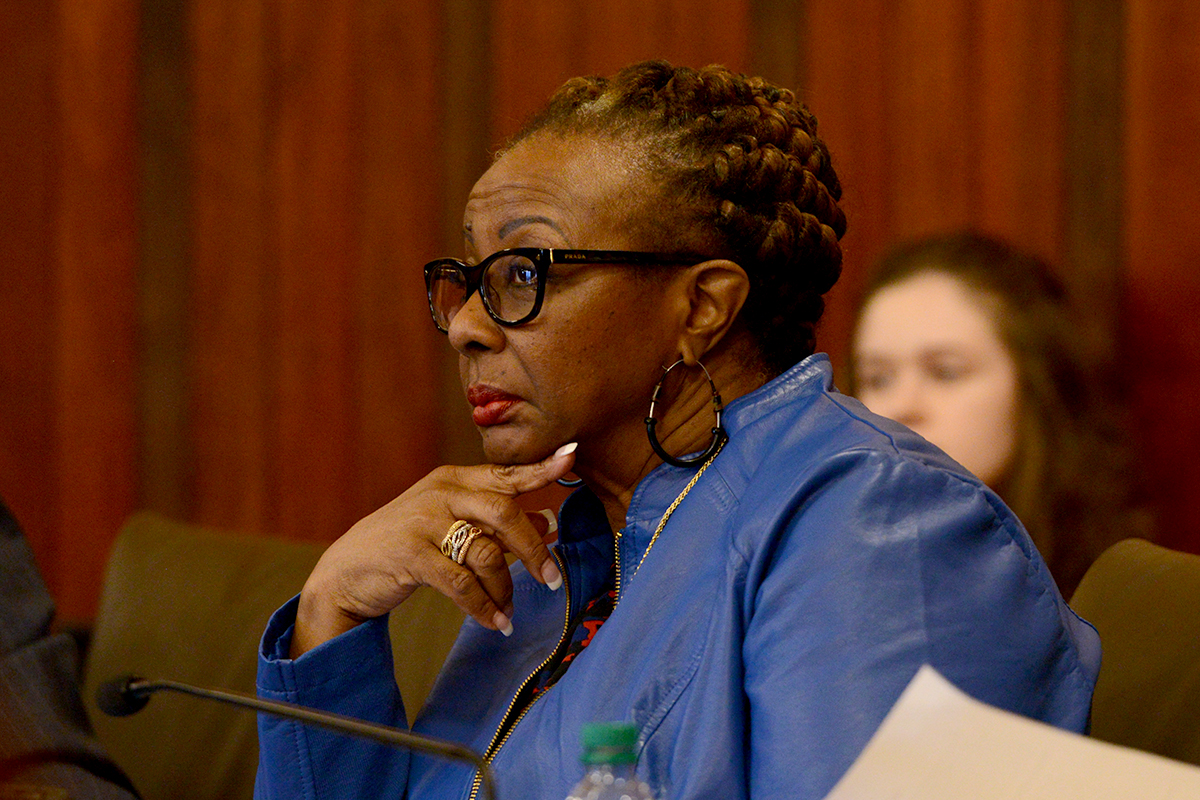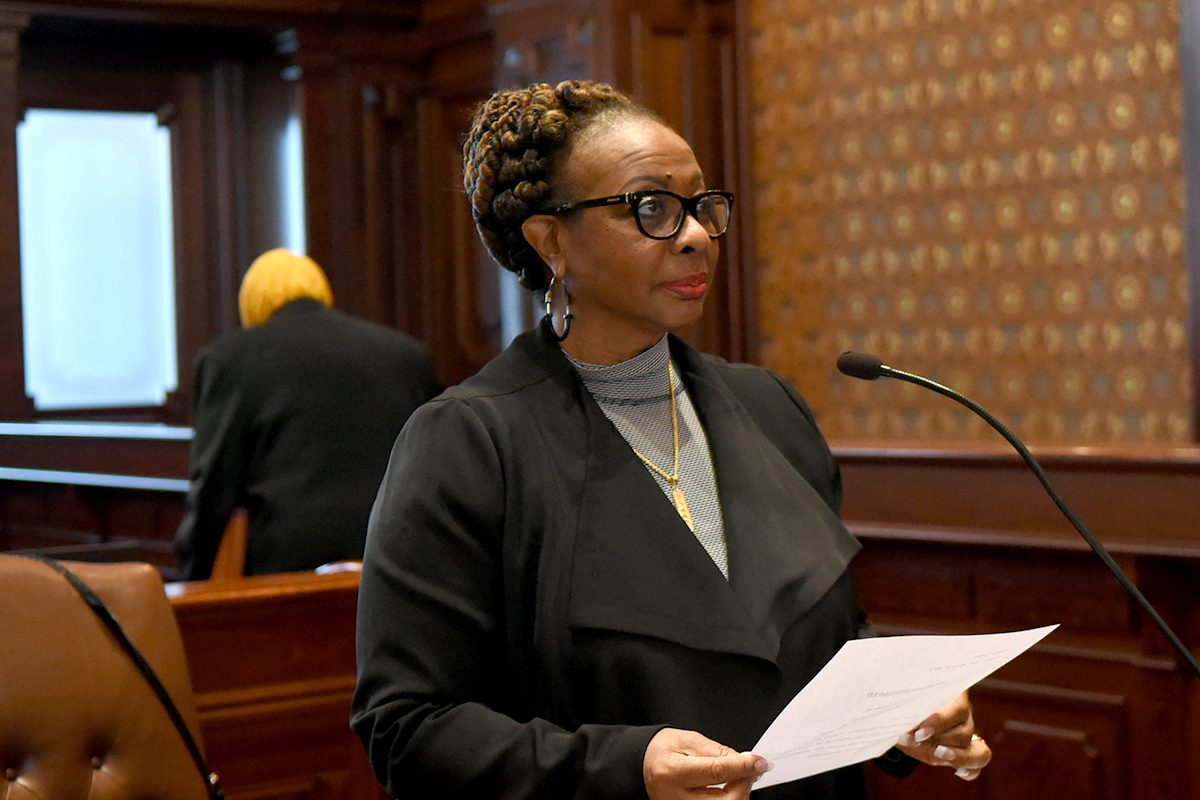- Details
- Category: Front Page
 State Senator Mattie Hunter (D-Chicago) voted in support of a minimum wage increase led by Assistant Majority Leader Kimberly A. Lightford. The legislation aims to gradually raise the Illinois’ minimum wage to $15 by January 2022.
State Senator Mattie Hunter (D-Chicago) voted in support of a minimum wage increase led by Assistant Majority Leader Kimberly A. Lightford. The legislation aims to gradually raise the Illinois’ minimum wage to $15 by January 2022.
“Competitive wages attract the right people for some of the state’s most challenging jobs,” said Hunter. “We live in an environment where unemployment and underemployment are already dire problems. The point of a job is for a person to earn enough money to survive in a decent manner.”
Senate Bill 81 would increase the minimum wage to:
• $9 per hour from January 1, 2018 to December 31, 2018
• $10 per hour from January 1, 2019 to December 31, 2019
• $11.25 from January 1, 2020 to December 31, 2020
• $13 per hour from January 1, 2021 to December 31, 2021
• $15 per hour on and after January 1, 2022
- Details
- Category: Front Page

The Senate Appropriations I Committee heard testimony Wednesday morning from Nirav Shah, director of the Illinois Department of Public Health, on possible budget cuts to reduce the $5 billion gap in Gov. Rauner’s budget.
The IDPH is holding an event celebrating “National Minority Health Month” in the Capitol’s rotunda this week.
“The department needs to refocus its priorities,” Hunter said. “To me, it’s highly hypocritical and counterproductive to celebrate bridging health equity, right after proposing cuts that will largely affect a group of individuals.”
- Details
- Category: Front Page

“We should treat the people that care for our most vulnerable citizens fairly,” Hunter said. “Programs like Redeploy Illinois, homeless youth services and others have been bearing the financial burden of the state of Illinois for the almost two years we’ve gone without a budget. This legislation will not only prioritize the payments human service providers need but also compensate organizations for delayed payments.”
Under current law, when state government fails to pay vendors on time, the Prompt Payment Act sets regulations for how to pay vendors in a timely manner for their services. Those guidelines only apply to construction contractors and some human service contractors.
More Articles …
Page 2 of 25


